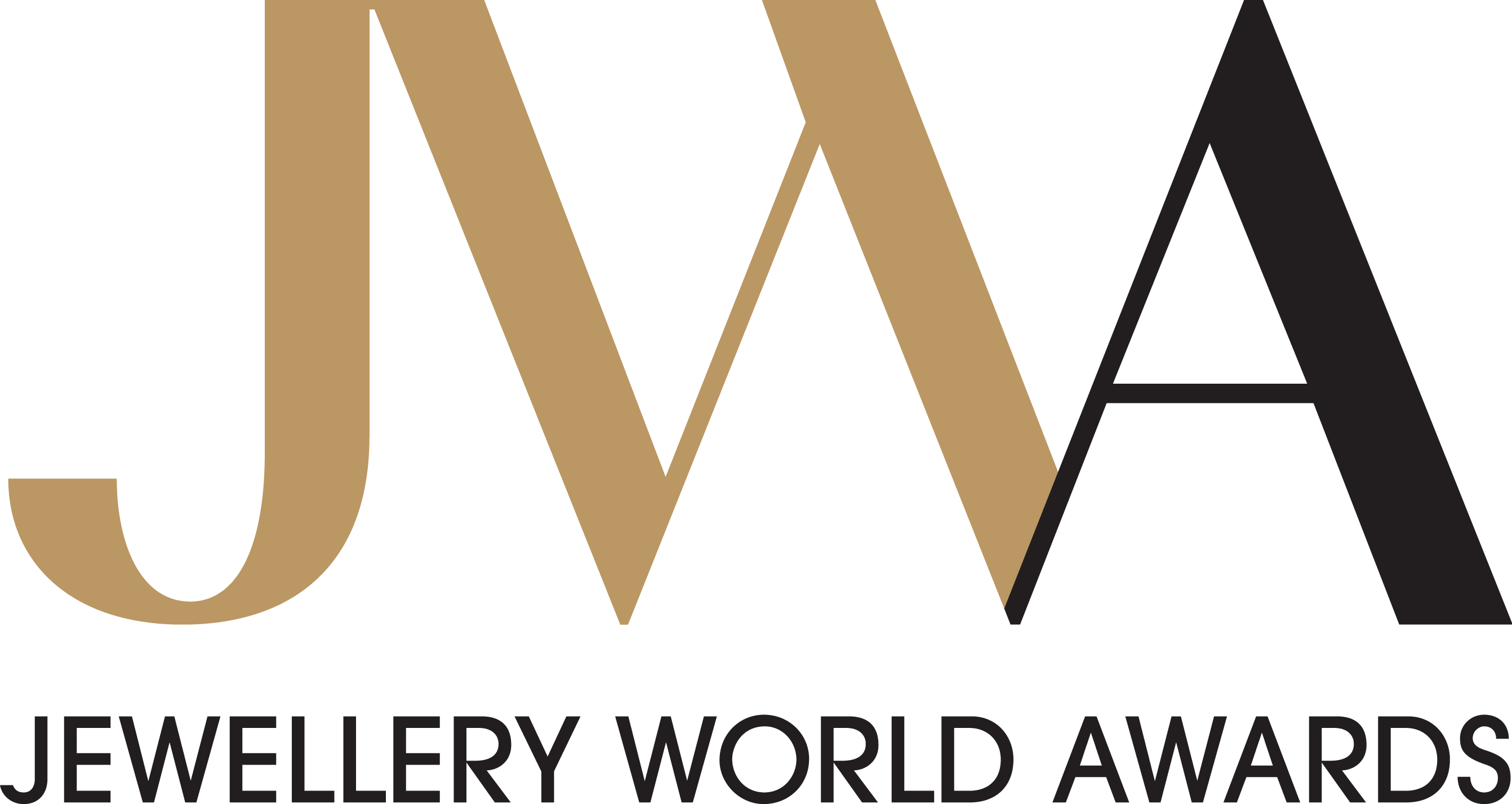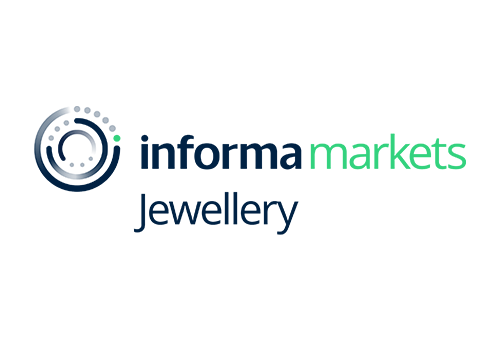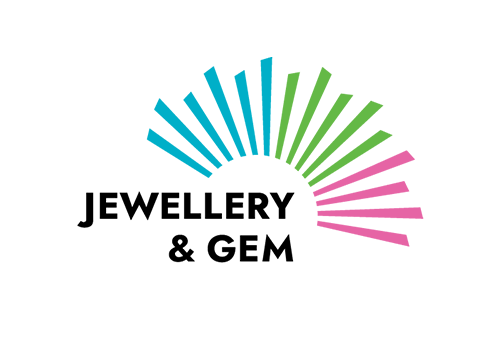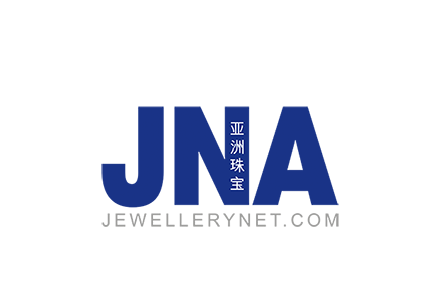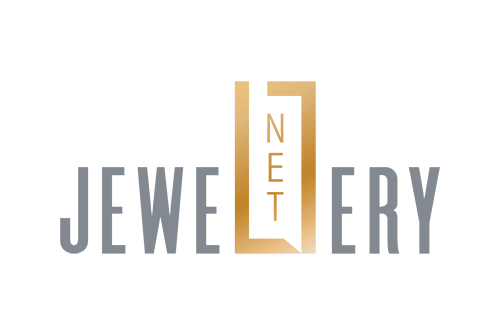Established in 1987, Fine Jewellery has always been guided by strong family values and a commitment to ethical business practices that shine through in every aspect of its operations. Headquartered in Mumbai, the company has a global reach through its presence in Belgium, the US and France, serving customers worldwide. Fine Jewellery’s manufacturing operations have been fully powered by renewable energy for more than three years. All jewellery produced are made with 100% recycled precious metals.
The company’s clear, goal-oriented and time-sensitive strategy for achieving long-term sustainability goals is outlined in its Sustainability Report 2024, demonstrating effective leadership and measurable achievements. All goals planned for the 2023-2024 and 2024-2025 periods were successfully accomplished.
During 2023-2024, these accomplishments included:
- Metal Stewardship: All Fine Jewellery products now made from certified recycled metals
- Transparency: Implementation of a first-of-its-kind, end-to-end jewellery traceability solution
- Employee Engagement: Conducting detailed scientific surveys to better understand employee needs
In the 2024-2025 period, the company’s achievements included:
- Sustainability Report 2024: Publication aligned with Global Standards
- Responsible Suppliers: All of Fine Jewellery’s strategic suppliers have accepted the company’s Supplier Code of Conduct
Looking ahead, the company aims to achieve Net Zero in Operations (Scope 1 and 2) within the 2026-2027 period, while simultaneously pursuing Workplace Advancement initiatives to improve health, safety and efficiency at work.
Established in 1992 by the Dholakia brothers – Savji, Tulsi, Himmat and Ghanshyam, Hari Krishna Exports has grown into a leading Indian diamond manufacturing and exporting company. Headquartered in Mumbai with manufacturing facilities in Surat, Gujarat, the company leverages over three decades of industry experience to export polished diamonds to more than 100 countries worldwide.
The company demonstrates tangible progress across all 17 UN Sustainable Development Goals through comprehensive initiatives spanning environmental conservation, community development and ethical business practices:
- Environmental Conservation and Water Management: Through its flagship Mission River initiative, Hari Krishna Exports has conserved over 36 billion litres of surface water by rejuvenating approximately 164 lakes and water bodies across the region, supporting SDGs 6 (Clean Water and Sanitation), 13 (Climate Action) and 15 (Life on Land).
- Agricultural Support and Rural Development: The enhanced water availability has transformed local agriculture, benefiting approximately 300,000 farmers with increased water resources that drive higher productivity and strengthen resilience against drought conditions, advancing SDGs 2 (Zero Hunger) and 13 (Climate Action).
- Social Welfare Initiatives: Since 2014, the company has conducted 12 Mass Marriage Ceremonies celebrating the union of 553 couples, including 32 in 2024 alone. These events eliminate financial burdens on underprivileged families while promoting inclusivity and social equity, supporting SDGs 1 (No Poverty), 5 (Gender Equality) and 10 (Reduced Inequalities).
- Community Health Programmes: In August 2024, Hari Krishna Exports organised a large-scale blood donation and health screening camp involving 530 donors, including employees and their families, demonstrating the company’s commitment to SDG 3 (Good Health and Well-Being).
- Inclusive Employment Practices: Between 2020 and 2024, Hari Krishna Exports’ workforce expanded significantly from 6,000 to over 9,000 employees through strong retention policies, inclusive hiring practices and a positive workplace culture. The company emphasises equal opportunity employment, transparent governance and active diversity training while engaging persons with disabilities and maintaining gender balance across all organisational levels (SDGs 5, 8, 10 and 16).
A specialist in the science of precious metals, Legor has, for over 45 years, been transforming metals into excellent alloys, powders and galvanic solutions for the production of jewellery and fashion accessories, guaranteeing customers reliability, safety and high performance. Among Legor’s founding principles, the protection of the Planet and People is fundamental.
To date, Legor is among the few companies in its sector that is able to certify that its products are made exclusively with precious metals (gold, silver, platinum, palladium and rhodium) that are 100% from recycled sources within a verified Chain of Custody. Thanks to the UNI EN ISO 14021:2021 certification obtained in October 2022, Legor is now able to guarantee that even some non-precious metals in its products come from 100% recycled sources – an ethical choice aligned with circular economy principles.
Among its 2024 accomplishments were:
Environmental Conservation
- 100% renewable energy (8% from owned photovoltaic plant, 92% certified purchased)
- 93% wastewater reused in processes
- 29% reduction in GPL consumption through optimisation
- 7.7% total reduction in CO₂ emissions (Scope 1, 2 and 3)
- Development of cyanide-free plating solutions (FLASHGOLD-EVO)
Social Responsibility
- 7,572 training hours in 2023
- Flexible work arrangements and wellness programmes with 86% employee engagement
- Community projects including an inclusive carousel and calisthenics system in Bressanvido, and strengthening of library service and support for cultural activities in Camposampiero
- Support for a Ugandan school with two building improvements and educational materials
- Collaboration with technical schools in Vicenza
- Increased female leadership representation to 29.4% (from 26% in 2022)
Business Growth
- 8.26% EBITDA (compared to 10.17% in 2022) – mainly due to metals fluctuation and the general geopolitical situation. This demonstrates stability in spite of a sector contraction.
- 3D Metal Hub’s new business stream in additive manufacturing, with over 150 custom prints completed in its first year and partnerships initiated with luxury brands for prototype production.
Paspaley has a rich pearling heritage, operating in remote Australian marine waters for nearly a century. Paspaley’s operations were initially founded on the harvest of pearl shell for mother of pearl and natural pearls in circa 1935 by the late Nicholas Paspaley Snr., before transitioning to the cultivation of Australian South Sea Pearls from Australia’s Pinctada maxima (P. maxima) pearl oyster in the 1950s. Paspaley is not only a producer of high-quality South Sea pearls coveted in the fine jewellery market but also mother of pearl sourced from the P. maxima pearl oyster.
Paspaley is cognizant that natural processes and ecosystems supporting its pearling operations must be resilient to emergent environmental threats.
In 2024, Paspaley delivered a range of substantial sustainability initiatives with concrete results and outcomes to meet its sustainability commitment. These were:
- Paspaley’s pearling operations, including its pearls, mother of pearl and pearl meat, continues to be certified as sustainable by the Marine Stewardship Council under their Fisheries Standard, with certification number MSC-F-30005. Paspaley sees value in being assessed for its sustainability credentials by an independent third-party and is a key deliverable of Pearl Stewardship’s objective Third-Party Certification.
- Launched Paspaley’s P. maxima Care and Handling Policy.
- Rolled out a Marine Debris Clean-Up programme. This is supported by the Dambimangari Aboriginal Corporation, whose Rangers attend clean-up activities. To date, over 750kg of historic marine debris has been removed from retired pearling sites formerly used by other pearl producers adjacent to leases that Paspaley has subsequently acquired.
- Identified an opportunity to reduce dependency on virgin plastic packaging for mother-of-pearl products. Working with an appropriate supplier, Paspaley’s mother-of-pearl packaging has been transitioned from virgin fossil fuel packaging to 100% post-consumer recycled plastic that is 100% Carbon Neutral and can be recycled at end of use. This movement from virgin plastic to 100% post-consumer recycled plastic is currently being assessed for pearl packaging.
Established in 1988, PNJ is recognised as one of Vietnam’s most prominent jewellery manufacturers and retailers. Currently, the company operates over 400 retail stores nationwide. PNJ owns three subsidiary companies and maintains a quality workforce of nearly 9,000 employees, including over 1,700 highly experienced jewellery artisans.
PNJ’s nationally recognised CSR initiatives include the “Zero Dong” Mini Supermarkets; “Warm Embrace” education campaign; Journey to Safe Motherhood; Raising Awareness for Autism in Vietnamese Children; Breast Cancer Support Programs and Happy Young Family, among others.
PNJ recorded net revenue growth of 14.1% in 2024 and a 7.3% increase in post-tax profit over the same period, marking the highest level of profit in the history of the company. The increase in finance as well as good ESG practices helped PNJ enter the VNSI index, which reflects PNJ’s commitment to implementing corporate governance criteria, environmental protection and social responsibility.
The company implemented initiatives to optimise energy efficiency, resulting in an 8.3% reduction in Scope 1 GHG emissions compared to 2023. Its commitment to transparency in greenhouse gas emissions inventory supports PNJ’s national roadmap for emissions reduction.
Due to investment in advanced technology, PNJ has achieved significant results in water reuse in the production process, including recycling 5,440 m³ of water at the Plating System, 5,057 m³ of gypsum wastewater in the process of cleaning products and successfully applying high-level oxidation technology, thereby contributing to the reuse of 5,043 m³ of water for sanitation purposes.
PNJ transformed its waste management model, focusing on recycling and minimising plastic waste. It achieved a 94% recycling rate (equivalent to 115.8 tonnes) of non-hazardous waste into input materials for the construction industry. Additionally, the company reduced hazardous waste by 12.15% through improved wastewater treatment systems and cut plastic waste in its supply chain by 55% by transitioning from disposable plastic packaging to paper or recycled plastic. Over 600kg of recycled packaging was utilised, accounting for 10% of the company’s total packaging.
SRK is a globally respected natural diamond crafting company, renowned for its values of Sophisticated Simplicity, Transparency and Ethics for over six decades. Founded by Shri Govind Dholakia, the SRK Group is a family of 6,000+ members, crafting natural diamonds at its Net-Zero energy green-certified facilities – SRK Empire and SRK House – in Surat, with global sales managed online and from the Mumbai headquarters. SRK is the first diamond crafting company globally to join the Science-Based Targets initiative (SBTi) and holds the highest number of ISO certifications in the industry. Its “Pure Impact” report transparently maps its actions to the UN SDGs and Paris Agreement.
In 2024, SRK’s accomplishments included:
- Lowest per-carat emissions from natural diamonds crafted in its facilities.
- Both of its natural diamond crafting facilities are Net-Zero Energy buildings, powered by renewable solar energy. Hence, the brand strategy “Pure Light” echoes with natural diamonds being crafted with “pure light.”
- Achieved Scope 1 and Scope 2 of Net Zero, and efforts are underway to achieve Scope 3.
- Efforts are underway to achieve Net-Zero Waste, Water and Carbon.
- Together with the Social Forestry Division of Navsari in South Gujarat, SRK has transformed 9.47 acres of barren salty land into fertile, life-giving soil.
- Within the last two years, the company has nurtured 8 Miyawaki forests, planting 83 diverse species of plants. More than 150,000 trees now stand tall.
- More than 3.5 million people have benefited from SRK’s healthcare services.
- Over 60,000 students have received various educational benefits.
- More than 100,000 people have benefited from SRK’s relief centre services.
Smiling Rocks is a lab-grown diamond brand dedicated to fostering a chain of smiles through sustainable luxury. The company’s goal is to contribute back to the community by allocating 1% of its loose diamond revenue and 3% from its jewellery sales towards four (4) different charity sectors – Education Support, Environmental Protection, Medical Support and Wildlife Protection. Smiling Rocks is a member of 1% for the Planet, donating 1% of its loose diamond business revenue to Environmental causes.
Among Smiling Rocks’ accomplishments in 2024 were:
Digital Education
- Four new digital libraries introduced in 2024, adding to 12 previously established. The goal is to launch 100 libraries globally
- Digital Training and Resource Centers (DTRC) in four schools benefiting 5,000+ students in Maharashtra and Gujarat
- US$6,250 in scholarships provided through First Responders Children’s Foundation
Employment: Skills Training for Women
- 50 women acquired employability skills through Y4D partnership (Y4D Foundation is a youth-led NGO with a pan-India presence)
- 100% employment rate for programme participants
Environmental Conservation
- 15,528 trees planted across Senegal, Mali, Kenya, Tanzania and Uganda with Trees for the Future
- 4,100 trees planted in the US state of Oregon with One Tree Planted
- 8,100 pounds of ocean trash removed from Guatemala’s coastline with 4Ocean
Wildlife Conservation
- Space for Giants partnership built protective fencing in Uganda. An impact study revealed that 87% of respondents no longer faced conflicts with elephants after the fence’s construction. The electric fence has transformed attitudes toward elephants, shifting perceptions from fear and resentment to appreciation and respect
- An impact study revealed that 90% of respondents claimed their crop yields increased to some degree
- US$122,000 raised through the auction of Smiling Rocks’ Haute Couture Dream Necklace at The Ormeley Dinner 2024, funding conservation programmes for endangered species
Valentine Silver International is a name synonymous with heritage, innovation and craftsmanship. The company’s journey began in the 1920s, when the Valentine Group pioneered the emerald trade in India. In 2004, the company marked a new chapter with the establishment of Valentine Silver International, focused on the manufacturing and export of fine jewellery – ushering its legacy into the global market.
Specialising in 925 Sterling Silver, Gold and Brass Fashion Jewellery, Valentine Silver’s creations feature over 150 natural gemstones and are embellished with diamonds and precious, semi-precious and synthetic stones. Today, Valentine Silver is recognised as a Star Export House by the Government of India, with 100% of its production dedicated to international markets.
The measurable impact of Valentine Silver International’s sustainability strategy is evident in every sphere – environmental conservation, social responsibility and business innovation. What sets its efforts apart is the integration of these goals into its core values, backed by numbers, people-centred practices and replicable frameworks.
The company believes sustainability is not a department – it is a culture. Among its 2024 accomplishments were:
Environmental Impact
- Solar Energy Generation: Its 700kW rooftop solar panel installation, commissioned in 2017, now produces over 1 million kWh of clean electricity annually. This supplies more than 60% of the factory’s total power needs, powering 2,500+ workstations and associated machinery. It helps the company avoid over 800 metric tonnes of CO₂ emissions annually, equivalent to planting more than 13,000 trees.
- Greener Commutes: In 2024, 850 employees commuted via company buses and carpools, avoiding significant personal vehicle use. Estimated carbon savings of 578,250kg of CO₂ per year (850 employees x 2.7kg CO₂ saved per day x 250 working days).
- Rainwater Harvesting: The company’s 60,000-litre capacity system captured over 3.7 lakh litres of rainwater in 2024. This reduced freshwater dependency by 30 – 40% for non-potable applications (gardening, flushing and cleaning).
- Water Recycling via ETP: All used water and acids from manufacturing processes are treated and reused. This ensures zero liquid discharge, while maintaining eco-friendly operations in line with ZED (Zero Effect Zero Defect) and ISO norms.
- Material Recovery and Recycling: The company collected and refines 5 – 6kg of silver dust weekly, yielding approximately 3.5kg of pure silver.
Business Impact
- Direct-to-Retail (D2R) Model: D2R approach has minimised supply chain carbon emissions, improved inventory efficiency and enhanced traceability. This has allowed the company to reduce wastage and foster stronger, transparent relationships with customers.
- Sustainable Product Design: In 2024, over 40% of new collections featured upcycled, recycled or ethically sourced materials. Imperfect stones are repurposed to create unique designs, adding emotional and material value while reducing waste.
- Adaptability in Global Markets: By aligning product development with sustainability trends and customer values, the company has expanded into eco-conscious markets. This resulted in a 15% growth in global sustainable orders from eco-conscious buyers in 2024.
